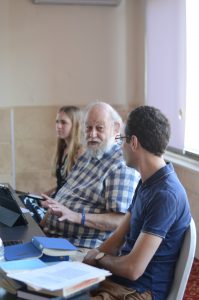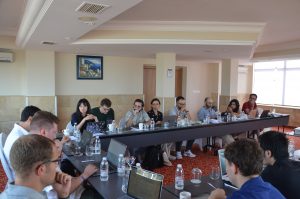The inaugural History and Philosophy of Science Workshop, bringing together faculty and graduate students from the Philosophy departments of Princeton University and Bilkent University, was held from October 13-15. The principal organizers for the event were Dan Garber (Princeton) and Alireza Fatollahi (Bilkent). Tarek Dika (Toronto) and David Miller (Auburn) joined the workshop as special guests. By all accounts, the workshop was a great success, both in terms of the quality of the discussions and rapport between participants. We’re already looking forward to the next edition!
The theme for this year’s discussions was the concept of ‘method’ as conceived in ancient and early modern times. A summary of the discussions that took place over the three-day event is as follows:
The first day began with an examination of Socratic epagōgḗ (induction). The discussion then turned to the nature of Epistêmê (scientific knowledge) for Aristotle, as presented in his Posterior Analytics. The first day concluded with a discussion on how Aristotelian induction is supposed to work and how it might lead to a knowledge of first principles.
The second day of the workshop was dedicated to Descartes’s conception of method as presented in his Regulae ad directionem ingenii. After examining Descartes’s method in the Regulae, its influence (or lack thereof) on Descartes’s later writings was traced. Dan Garber has argued that Descartes largely abandoned the method of the Regulae in his later years, while Tarek Dika, in his recent book (Descartes’s Method: The Formation of the Subject of Science), has argued that Descartes employed the method of the Regulae, broadly and properly understood, throughout his career.
On the third day, Newton’s method, as presented in his “Rules of Reasoning” and the “General Scholium” of the Principia, as well as in the Opticks, was examined. Discussions covered the history of the “rules” and how this history can help illuminate Newton’s rejection of hypotheses in natural philosophy.

